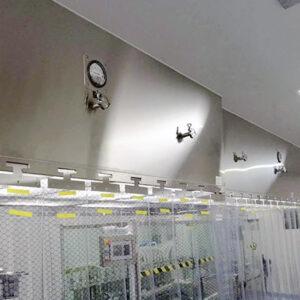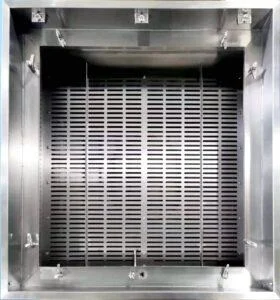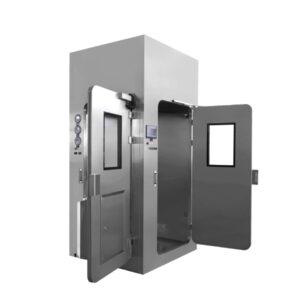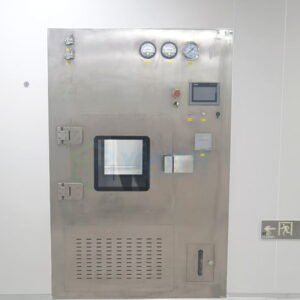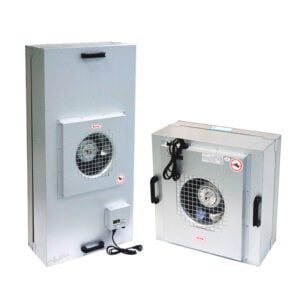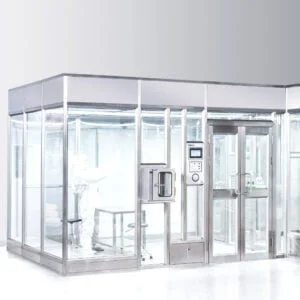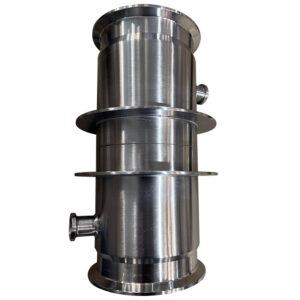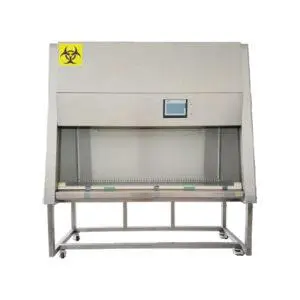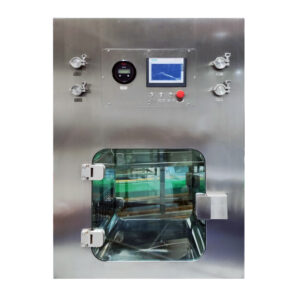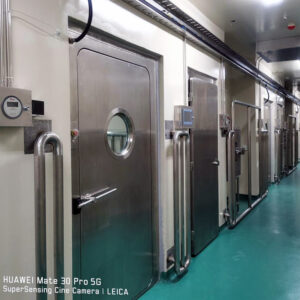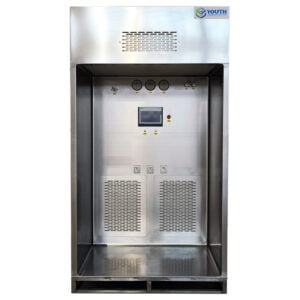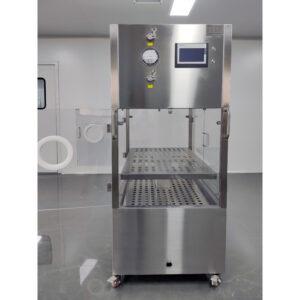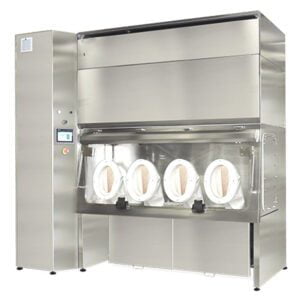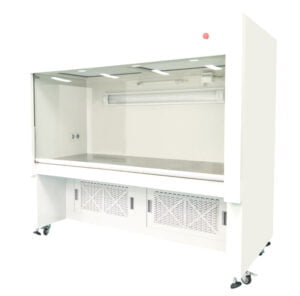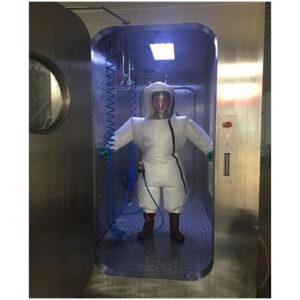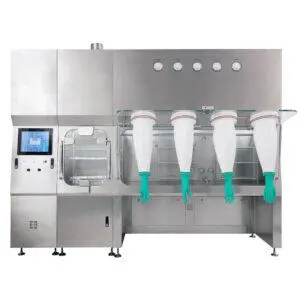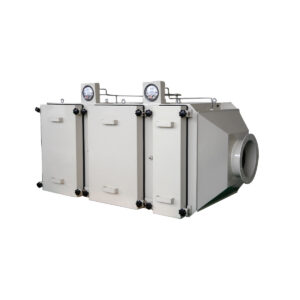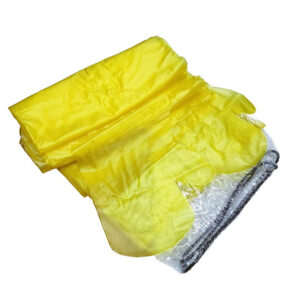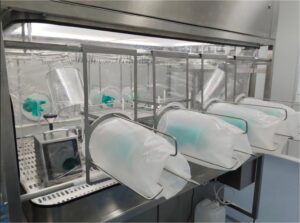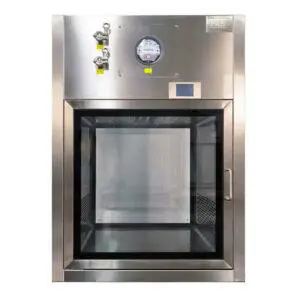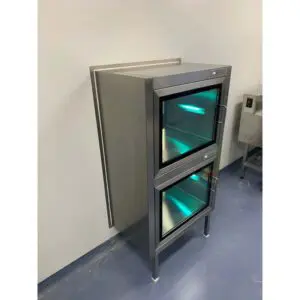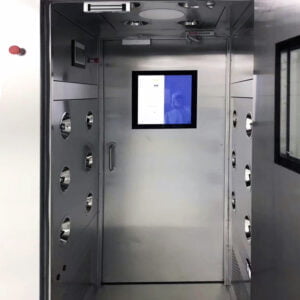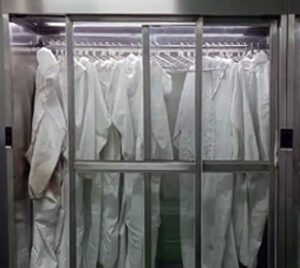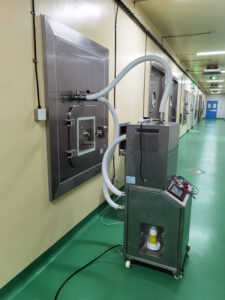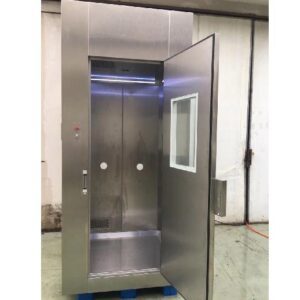Customizable mobile LAF carts are revolutionizing the way industries maintain clean and sterile environments. These versatile units offer flexibility and precision in controlling air quality, making them indispensable in pharmaceuticals, biotechnology, and other sectors where contamination control is paramount. As businesses increasingly recognize the importance of tailored solutions, the demand for customizable LAF carts has surged, prompting manufacturers to innovate and expand their offerings.
The concept of customizable mobile LAF carts combines the benefits of laminar airflow technology with the adaptability needed in modern, dynamic workspaces. These carts can be designed to fit specific spatial requirements, workflow patterns, and cleanliness standards, ensuring optimal performance in diverse settings. From adjustable dimensions to specialized filtration systems, every aspect of these carts can be fine-tuned to meet the unique needs of each facility.
As we delve deeper into the world of customizable mobile LAF carts, we'll explore their key features, applications, and the advantages they bring to various industries. We'll examine how these innovative units are designed, the range of customization options available, and the impact they have on maintaining sterile environments. Whether you're a laboratory manager, a pharmaceutical professional, or simply interested in cutting-edge clean air technology, this comprehensive guide will provide valuable insights into the versatility and efficiency of customizable mobile LAF carts.
Customizable mobile LAF carts represent a significant advancement in contamination control technology, offering unparalleled flexibility and efficiency in maintaining sterile environments across various industries.
What are the core components of a customizable mobile LAF cart?
At the heart of every customizable mobile LAF cart lies a set of essential components that work in harmony to create a controlled, clean air environment. These core elements form the foundation upon which customization options are built, allowing for a tailored approach to meet specific industry needs.
The primary components of a customizable mobile LAF cart typically include a HEPA filtration system, a fan unit, a work surface, and a sturdy frame with casters for mobility. These elements work together to create a laminar airflow that sweeps across the work area, effectively removing particulates and maintaining a sterile environment.
Delving deeper into the construction, we find that the HEPA filtration system is crucial for achieving the high levels of air cleanliness required in many applications. The fan unit, carefully calibrated to work with the filtration system, ensures a consistent and appropriate airflow velocity. The work surface, often made of stainless steel or other non-porous materials, provides a cleanable area for handling sensitive materials.
The HEPA filtration system in customizable mobile LAF carts can remove 99.97% of particles as small as 0.3 microns, ensuring a sterile environment suitable for critical applications in pharmaceuticals and biotechnology.
To illustrate the typical specifications of a customizable mobile LAF cart, consider the following table:
| Component | Specification |
|---|---|
| HEPA Filter | H14 class (99.995% efficiency) |
| Fan Unit | Variable speed, 0-0.45 m/s airflow |
| Work Surface | 304 grade stainless steel |
| Frame | Powder-coated steel with locking casters |
| Dimensions | Customizable, typically 900-1500mm width |
In conclusion, the core components of a customizable mobile LAF cart form a robust foundation for clean air technology. By understanding these essential elements, users can better appreciate the customization options available and how they can be tailored to specific needs, ensuring optimal performance in maintaining sterile environments across various industries.
How does customization enhance the functionality of mobile LAF carts?
Customization is the key differentiator that sets mobile LAF carts apart in the realm of clean air solutions. By allowing users to tailor various aspects of the cart to their specific needs, customization significantly enhances the functionality and applicability of these units across diverse settings.
The ability to customize mobile LAF carts means that users can select from a range of options for size, material, airflow direction, and additional features. This flexibility ensures that the cart not only fits within the physical constraints of a workspace but also meets the precise operational requirements of the task at hand.
One of the most significant advantages of customization is the ability to adapt the cart to different cleanliness standards. For instance, a YOUTH customizable mobile LAF cart can be configured to meet ISO 5, ISO 6, or ISO 7 cleanliness standards, depending on the specific needs of the application. This adaptability makes these carts suitable for a wide range of industries, from pharmaceuticals to electronics manufacturing.
Customizable mobile LAF carts can be tailored to achieve airflow velocities ranging from 0.3 to 0.6 m/s, allowing users to optimize the balance between particle removal efficiency and energy consumption.
To illustrate the impact of customization on functionality, consider the following table showcasing different customization options and their benefits:
| Customization Option | Functional Benefit |
|---|---|
| Adjustable Height | Ergonomic comfort for different users |
| Interchangeable Work Surfaces | Adaptability to various processes |
| UV Sterilization | Enhanced microbial control |
| Integrated Power Outlets | Convenience for powered instruments |
| Custom Dimensions | Optimal space utilization |
In conclusion, the customization options available for mobile LAF carts significantly enhance their functionality by allowing users to create a tailored solution that meets their specific needs. This adaptability not only improves the efficiency of clean air operations but also extends the applicability of these carts across a broader range of industries and applications.
What industries benefit most from customizable mobile LAF carts?
Customizable mobile LAF carts have found applications across a wide spectrum of industries where maintaining a clean and controlled environment is crucial. The versatility and adaptability of these units make them invaluable in sectors where contamination control and sterility are paramount.
The pharmaceutical industry stands out as one of the primary beneficiaries of customizable mobile LAF carts. These carts play a crucial role in drug manufacturing, quality control laboratories, and research facilities. They provide a portable, sterile environment for handling sensitive materials, compounding medications, and conducting critical tests.
Another sector that heavily relies on these carts is biotechnology. In biotech labs, researchers often need to work with delicate cell cultures, DNA samples, and other sensitive biological materials. Customizable mobile LAF cart provides the flexibility to create controlled environments wherever needed within the facility, enhancing workflow efficiency and ensuring sample integrity.
In the semiconductor industry, customizable mobile LAF carts have been shown to reduce particle contamination by up to 99.9%, significantly improving product yield and quality in sensitive manufacturing processes.
To better understand the diverse applications of customizable mobile LAF carts across industries, consider the following table:
| Industry | Application | Key Benefit |
|---|---|---|
| Pharmaceuticals | Aseptic processing | Maintains sterility for drug production |
| Biotechnology | Cell culture work | Protects sensitive biological samples |
| Electronics | PCB assembly | Minimizes dust contamination |
| Aerospace | Precision part assembly | Ensures cleanliness of critical components |
| Medical Devices | Quality control | Provides controlled testing environment |
In conclusion, while pharmaceuticals and biotechnology are at the forefront of industries benefiting from customizable mobile LAF carts, their applications extend far beyond. From electronics to aerospace, any sector requiring a controlled, clean environment can leverage these versatile units to improve processes, enhance product quality, and maintain stringent cleanliness standards.
How do customizable mobile LAF carts improve workflow efficiency?
Customizable mobile LAF carts are designed with workflow efficiency in mind, offering features that streamline processes and enhance productivity in controlled environments. The mobility and adaptability of these units allow for flexible workspace configurations, reducing the need for fixed clean room installations and enabling more dynamic use of laboratory space.
One of the key ways these carts improve workflow efficiency is through their portability. Users can easily move the clean air environment to where it's needed most, eliminating the need to transport sensitive materials across potentially contaminated areas. This mobility not only saves time but also reduces the risk of sample contamination during transport.
Furthermore, the customizable nature of these carts allows for the integration of task-specific features. For example, built-in storage compartments, adjustable shelving, or specialized equipment mounts can be incorporated into the design. These customizations enable operators to have all necessary tools and materials at hand, minimizing movement and reducing the time spent on setup and breakdown of workstations.
Studies have shown that implementing customizable mobile LAF carts in pharmaceutical quality control labs can reduce sample processing time by up to 30%, significantly improving overall laboratory throughput.
To illustrate the impact of customizable features on workflow efficiency, consider the following table:
| Customization Feature | Workflow Improvement |
|---|---|
| Integrated Data Ports | Facilitates real-time data logging |
| Adjustable Work Height | Reduces operator fatigue |
| Built-in Waste Management | Streamlines disposal processes |
| Touch-screen Controls | Simplifies operation and monitoring |
| Modular Accessories | Allows quick reconfiguration for different tasks |
In conclusion, customizable mobile LAF carts significantly improve workflow efficiency by providing a flexible, portable clean air solution that can be tailored to specific tasks and processes. By reducing setup time, minimizing contamination risks, and integrating task-specific features, these carts enable operators to work more effectively and productively in controlled environments across various industries.
What are the key considerations when designing a customized mobile LAF cart?
Designing a customized mobile LAF cart requires careful consideration of several key factors to ensure that the final product meets the specific needs of the user while maintaining optimal performance. The design process involves balancing technical requirements with practical considerations to create a cart that is both effective and user-friendly.
One of the primary considerations is the intended application of the cart. This determines the required cleanliness level, which in turn influences the choice of filtration system and airflow design. For instance, applications in the pharmaceutical industry may require higher cleanliness standards compared to those in electronics manufacturing.
Another crucial factor is the physical environment where the cart will be used. This includes considerations such as available space, power supply, and the need for mobility. The dimensions of the cart, type of casters, and power options (e.g., battery-operated or plug-in) should be tailored to fit the specific workspace and operational requirements.
Custom-designed mobile LAF carts can incorporate energy-efficient features that reduce power consumption by up to 40% compared to standard models, without compromising on performance or cleanliness standards.
To guide the design process, consider the following table of key design considerations and their implications:
| Design Consideration | Implication |
|---|---|
| Cleanliness Standard | Determines filtration and airflow requirements |
| Cart Dimensions | Affects mobility and workspace compatibility |
| Material Selection | Impacts durability and cleanability |
| Airflow Direction | Influences protection level and application suitability |
| Ergonomics | Affects user comfort and long-term usability |
In conclusion, designing a customized mobile LAF cart involves a comprehensive approach that takes into account the specific needs of the user, the intended application, and the operational environment. By carefully considering these factors, manufacturers can create tailored solutions that not only meet the required cleanliness standards but also enhance overall efficiency and user satisfaction in controlled environment operations.
How do customizable mobile LAF carts adapt to evolving industry standards?
The ability of customizable mobile LAF carts to adapt to evolving industry standards is a crucial aspect of their design and functionality. As regulatory requirements and best practices in cleanroom technology continue to advance, these carts must be capable of meeting new challenges while maintaining their effectiveness in controlling contamination.
One of the key ways customizable mobile LAF carts adapt to changing standards is through modular design. This approach allows for easy upgrades and modifications to existing units, ensuring that they can be updated to meet new requirements without the need for complete replacement. For example, filtration systems can be upgraded to meet more stringent particle retention standards, or monitoring systems can be added to provide real-time data on air quality and flow rates.
Moreover, manufacturers of customizable mobile LAF carts often work closely with industry experts and regulatory bodies to anticipate future trends and requirements. This proactive approach enables them to incorporate forward-thinking features into their designs, ensuring that the carts remain compliant and effective even as standards evolve.
Recent advancements in customizable mobile LAF cart technology have led to the development of "smart" carts capable of self-monitoring and adjusting airflow parameters in real-time, ensuring consistent compliance with the latest industry standards.
To illustrate how customizable mobile LAF carts adapt to different industry standards, consider the following table:
| Industry Standard | Adaptation Feature |
|---|---|
| ISO 14644-1:2015 | Upgradable filtration to meet new cleanliness classes |
| GMP Annex 1 | Enhanced monitoring capabilities for aseptic processing |
| EU GMP Guide | Adjustable airflow patterns for different product protection levels |
| USP <797> | Integrated pressure differential monitoring for compounding applications |
| IEST-RP-CC002.4 | Modular design allowing for easy HEPA filter integrity testing |
In conclusion, the adaptability of customizable mobile LAF carts to evolving industry standards is a testament to their innovative design and the forward-thinking approach of manufacturers. By incorporating modular components, staying abreast of regulatory changes, and focusing on future-proofing their designs, these carts remain at the forefront of cleanroom technology, ensuring long-term value and compliance for users across various industries.
What maintenance protocols ensure optimal performance of customizable mobile LAF carts?
Maintaining customizable mobile LAF carts is crucial for ensuring their continued optimal performance and longevity. Proper maintenance not only preserves the cleanliness of the working environment but also safeguards the integrity of processes carried out within these controlled spaces.
Regular maintenance protocols typically include routine inspections, cleaning procedures, and periodic performance tests. These steps are essential to identify any potential issues early and to ensure that the cart continues to meet the required cleanliness standards. For instance, HEPA filters need to be checked regularly for integrity and replaced when necessary to maintain their efficiency in particle removal.
Another critical aspect of maintenance is the calibration of airflow and monitoring systems. This ensures that the cart continues to provide the correct air velocity and maintains the appropriate pressure differentials required for laminar flow. Regular calibration also helps in detecting any deviations from the set parameters, allowing for timely adjustments.
Implementing a comprehensive maintenance program for customizable mobile LAF carts can extend their operational lifespan by up to 50% and reduce the risk of contamination incidents by as much as 75%.
To provide a clear overview of maintenance requirements, consider the following table outlining key maintenance tasks and their recommended frequencies:
| Maintenance Task | Frequency | Purpose |
|---|---|---|
| HEPA Filter Integrity Test | Semi-annually | Ensure filter efficiency |
| Airflow Velocity Check | Monthly | Verify laminar flow conditions |
| Surface Cleaning | Daily | Maintain cleanliness of work area |
| Motor and Fan Inspection | Quarterly | Prevent mechanical issues |
| Calibration of Monitoring Systems | Annually | Ensure accurate readings |
In conclusion, adhering to a structured maintenance protocol is essential for the optimal performance of customizable mobile LAF carts. Regular inspections, cleaning, and calibration not only ensure compliance with cleanliness standards but also contribute to the longevity and reliability of these critical pieces of equipment. By implementing these maintenance practices, users can maximize the value of their investment and maintain the integrity of their controlled environments.
How do customizable mobile LAF carts contribute to sustainable laboratory practices?
Customizable mobile LAF carts are increasingly recognized for their role in promoting sustainable laboratory practices. As industries strive to reduce their environmental footprint, these versatile units offer several advantages that align with sustainability goals while maintaining the highest standards of cleanliness and contamination control.
One of the primary ways customizable mobile LAF carts contribute to sustainability is through their energy efficiency. Many modern designs incorporate advanced fan technologies and optimized airflow patterns that reduce power consumption without compromising performance. This not only lowers energy costs but also diminishes the overall carbon footprint of laboratory operations.
Furthermore, the customizable nature of these carts allows for the integration of eco-friendly materials and components. For instance, manufacturers can use recycled or recyclable materials in the construction of the cart frame or work surfaces, contributing to a circular economy approach in laboratory equipment design.
Recent studies have shown that implementing energy-efficient customizable mobile LAF carts can reduce a laboratory's energy consumption related to clean air systems by up to 30%, significantly contributing to overall sustainability efforts.
To illustrate the sustainable features of customizable mobile LAF carts, consider the following table:
| Sustainable Feature | Environmental Benefit |
|---|---|
| LED Lighting | Reduced energy consumption and longer lifespan |
| Variable Speed Fans | Optimized energy use based on actual needs |
| Recyclable Materials | Reduced waste and improved end-of-life management |
| Low-VOC Coatings | Improved indoor air quality and reduced emissions |
| Smart Power Management | Automatic shutdown of idle components |
In conclusion, customizable mobile LAF carts play a significant role in promoting sustainable laboratory practices. By offering energy-efficient designs, incorporating eco-friendly materials, and providing flexibility that reduces the need for multiple specialized units, these carts help laboratories reduce their environmental impact while maintaining the highest standards of cleanliness and contamination control. As sustainability continues to be a priority across industries, the contribution of these innovative carts to green laboratory practices is likely to become increasingly valuable.
In conclusion, customizable mobile LAF carts represent a significant advancement in clean air technology, offering unparalleled flexibility and efficiency in maintaining sterile environments across various industries. These versatile units combine the benefits of laminar airflow technology with the adaptability needed in modern, dynamic workspaces, making them indispensable in pharmaceuticals, biotechnology, electronics, and other sectors where contamination control is paramount.
Throughout this exploration, we've seen how the core components of these carts form a robust foundation for clean air technology, while customization options enhance their functionality and applicability across diverse settings. From adjustable dimensions to specialized filtration systems, every aspect of these carts can be fine-tuned to meet the unique needs of each facility, improving workflow efficiency and adapting to evolving industry standards.
The impact of customizable mobile LAF carts extends beyond their primary function of maintaining sterile environments. They contribute significantly to sustainable laboratory practices by incorporating energy-efficient designs and eco-friendly materials, aligning with the growing emphasis on reducing environmental footprints in industrial and research settings.
As industries continue to recognize the importance of tailored solutions in contamination control, the demand for customizable mobile LAF carts is likely to grow. Their ability to provide flexible, efficient, and sustainable clean air solutions positions them as a key technology in the future of controlled environment operations. Whether in a pharmaceutical quality control lab, a biotech research facility, or an electronics manufacturing plant, these innovative carts will continue to play a crucial role in maintaining the highest standards of cleanliness and productivity.
External Resources
Mobile LAF Cabinet / Laminar Air Flow Trolley In Pharmaceutical Industry – Provides detailed specifications and applications of mobile LAF cabinets in the pharmaceutical industry.
Horizontal LAMINAR FLOW TROLLEY – Offers information on horizontal laminar flow trolleys for sensitive product handling.
LAF Garment Cabinets: Customizing Airflow Settings – Discusses the importance of customizable airflow settings in controlled environments.
Mobile LAF Cabinet – Customizable Size and Style – Emphasizes the customizability of mobile LAF cabinets for pharmaceutical applications.
Custom Mobile Business Carts – Bar A La Cart – Demonstrates the concept of customizability in mobile carts for various business applications.
Faster srl – Customization Options for LAF Trolleys – Details customization options available for laminar flow trolleys in controlled environments.
Related Contents:
- Biotech Research: Mobile LAF Cart Applications
- Airflow Control in Mobile LAF Carts: Expert Guide
- Cleanroom Mobile LAF Carts: Material Transport Tips
- GMP-Compliant Mobile LAF Carts: Certification Guide
- ISO 14644-1 Compliant Mobile LAF Carts: 2025 Guide
- Mobile LAF Carts for Semiconductor Industry: Guide
- Food Industry Mobile LAF Carts: Sterile Packaging
- Mobile LAF Carts for Pharma: Sterile Transfer Guide
- Mobile LAF Cart HEPA Filtration: Efficiency Guide


